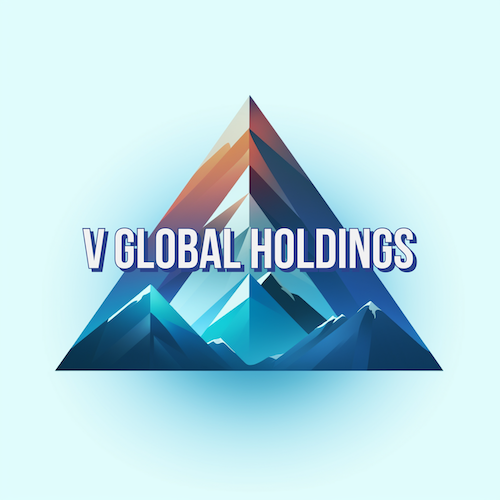The year 2020 was easily one of the most difficult ones we have witnessed in the last decade or more. It also went on to transform real estate needs and perceptions and has had a significant impact on the sector through2021. This has been particularly prominent for luxury real estate. With new needs arising, homebuyers want more out of their real estate purchases. Previously, they were concerned with access to amenities, neighborhoods, and home features. While those needs still drive real estate decisions, there have several notable changes that real estate developers must account for. How has this influenced luxury real estate trends in 2021? Let’s find out.
Emphasis on Health-Driven Choices
Last year was an eye-opener for most of us on the poor health choices we make. Be it improper nutrition or lack of exercise or hygiene, there is plenty that we didn’t pay attention to until the pandemic hit. Naturally, with the pandemic redefining life as we know it, there have been questions on how we can lead healthier lives in a way that is easy, sustainable, and cost-effective.
This has impacted luxury real estate development in 2021, too, and we have seen an increased emphasis on homes with features that support such needs. For instance, people might opt to buy a townhouse instead of a luxury apartment since they want to avoid sharing an elevator with other residents due to health concerns.
Mental health has become a primary focus too. In this case, we are seeing people choose luxury homes in the suburbs instead of busy and stressful urban centers. Terraced apartments are highly popular, too, since they offer some outdoor space that helps residents not feel cooped up all the time.
Besides this, there is a growing emphasis on buying luxury real estate with the latest HVAC systems and UV lighting that can help ensure air filtration and cleanliness to protect residents.
Changes At Work
We saw remote work become a norm for all kinds of businesses in 2020. Companies that emphasized in-office work to ensure productivity had no choice but to shut down and direct their employees to work from home. While most companies are calling their employees back, prevailing virus concerns suggest remote work will continue to be the go-to option in the future.
Once again, this has had a significant impact on luxury real estate development. Primarily, we are seeing buyers seeking properties with space for a home office. In the event that businesses close down again, this can help shift back to remote work easily without compromising on productivity.
Luxury real estate developers can keep this in mind when planning for new properties and offer a home that meets consumer needs. Currently, luxury townhouses, apartments with alcoves that you can convert into offices, and terraced apartments are drawing a great deal of attraction.
Second Home Markets Were a Popular Choice
Second-home markets have also drawn a steady number of buyers in 2021. Once again, this real estate trend has been attributed to the changes brought about by the pandemic. Remote working offers homebuyers more flexibility in terms of their physical location. It allows people to enjoy vacation homes on a more regular basis. Falling mortgage rates have also made these homes highly attractive for luxury real estate buyers.
According to a report by Redfin, the number of buyers in the United States that chose to lock in mortgage rates to buy second homes increased by 48% on a year-on-year basis in May 2021. Demand for vacation homes also saw a year-on-year increase of 11% in June 2020. While demand has cooled since, real estate developers can consider the shifts in consumer needs when determining the viability of second-home markets.
Real Estate Continues to be Investment Option
From an investment perspective, luxury real estate is still an attractive option for investors interested in diversifying their investment portfolios. Like stock markets and other financial markets, the real estate market has also benefited from a massive monetary stimulus, vaccine news, and low interest rates.
The onset of the pandemic quickly led to a recession, but investors are being increasingly optimistic and willing to take risks. This is evident from the prevailing interest in asset classes such as real estate that has seen a rise in investment activity during 2021.
Security and Privacy Continue to be on the Forefront
While the COVID-19 pandemic has brought about several changes in consumer behavior, some things continue to remain consistent. At the end of the day, affluent families will look for luxury real estate that aligns with their priorities, be it in terms of location, safety, or amenities. Affluent consumers need homes that allow them to ensure the security and privacy of their families. With the economy reopening, socializing and entertainment are also driving factors behind real estate purchases.
Real estate developers need to account for these traditional needs alongside any new ones to truly win over consumers and offer something that appeals on a practical and emotional level.
Key Takeaways

There are plenty of real estate trends that have dominated 2021. Some of these are likely to last beyond this year and shape luxury real estate development for several years to come. The most prominent of these trends is a focus on homes that match consumer priorities relating to health safety, security, privacy, and changing work environments.
While many luxury real estate buyers have demonstrated interest in suburban lifestyles, the ongoing vaccinations and return of commercial activity indicate that consumers will go back to seeking real estate such as high-end condos in urban centers. Of course, this largely depends on whether the pandemic continues to prevail or not.
If you are interested in learning more about luxury real estate, reach out to Victor Jung. His experience and expertise in real estate, finance, investments, and other relevant areas can help you make a more informed decision on where the market is headed and what you can expect for the remainder of this year. Visit https://victorjung.com/ to learn more.

